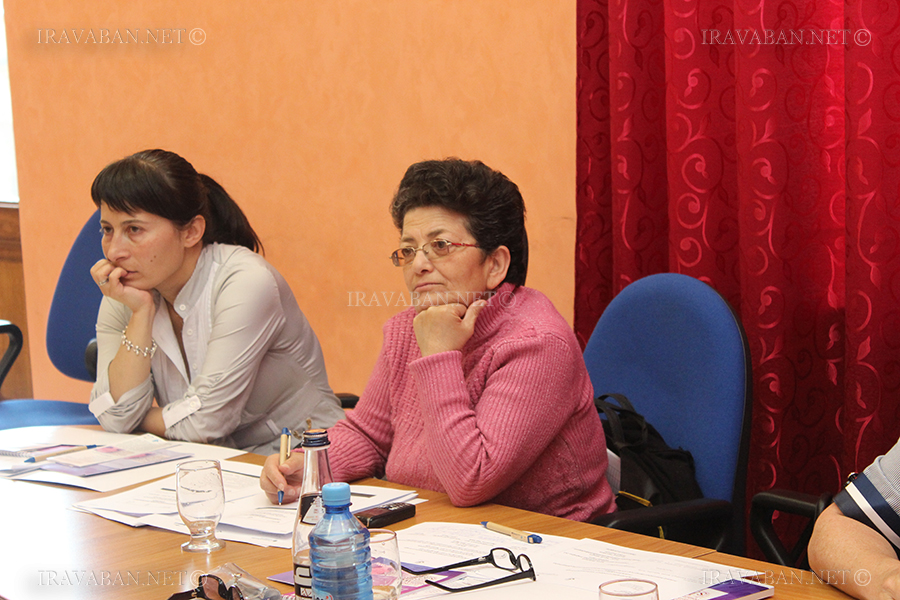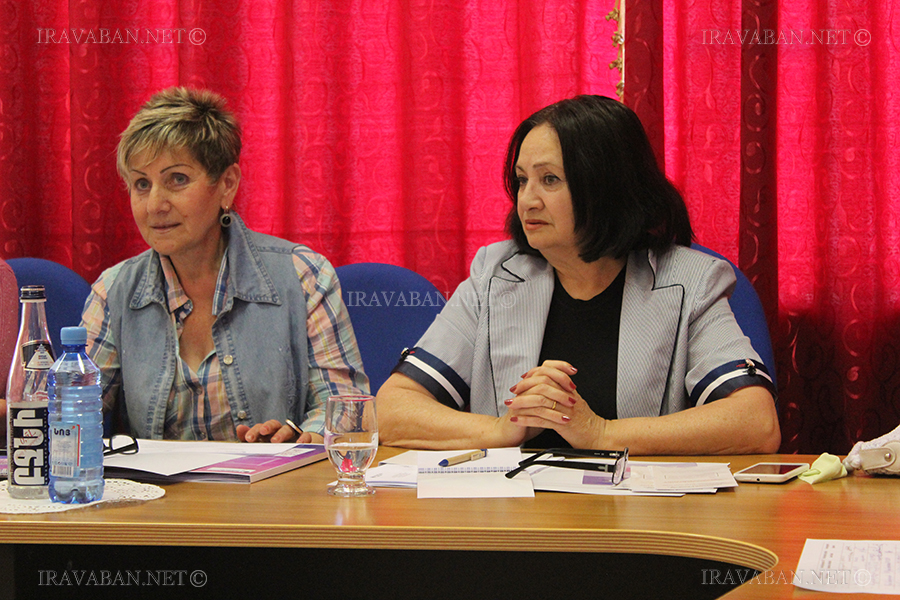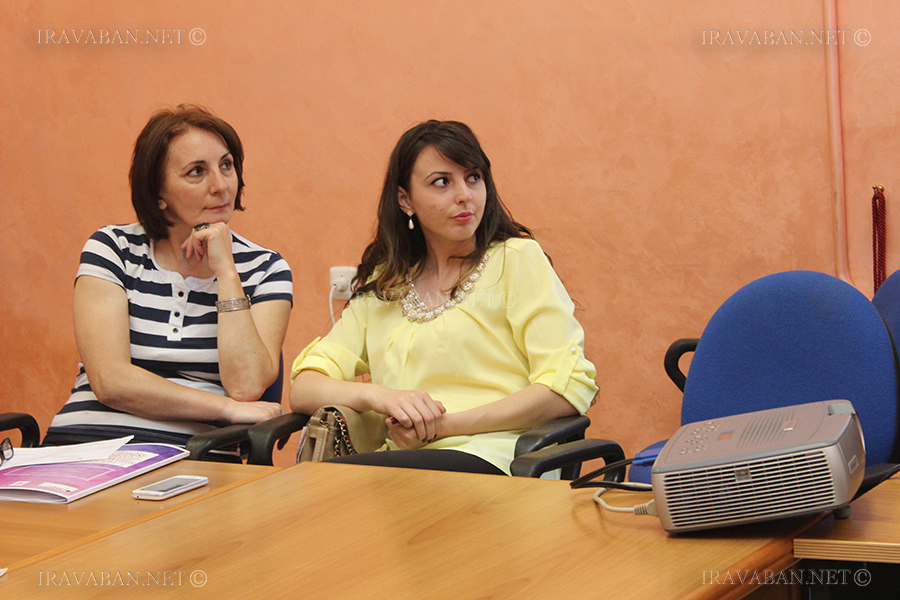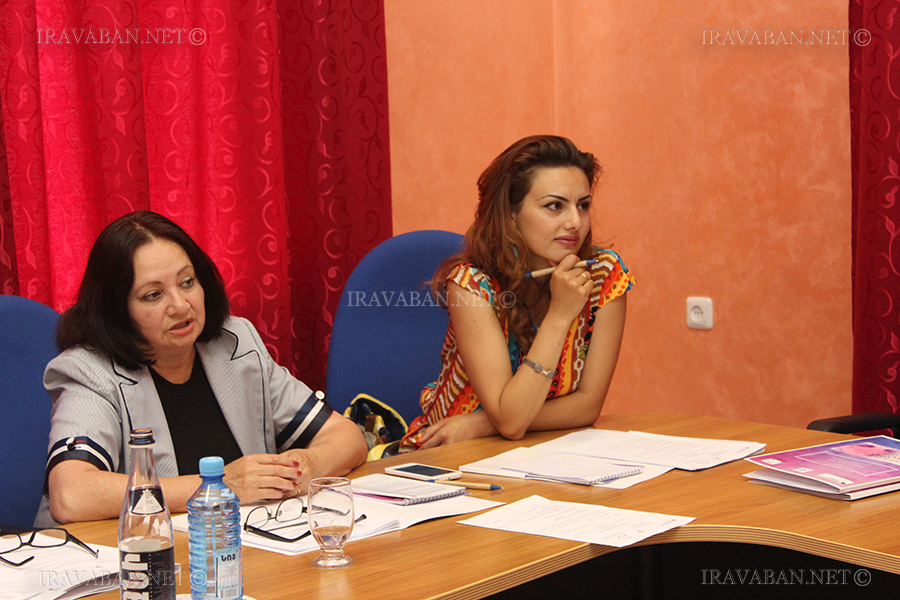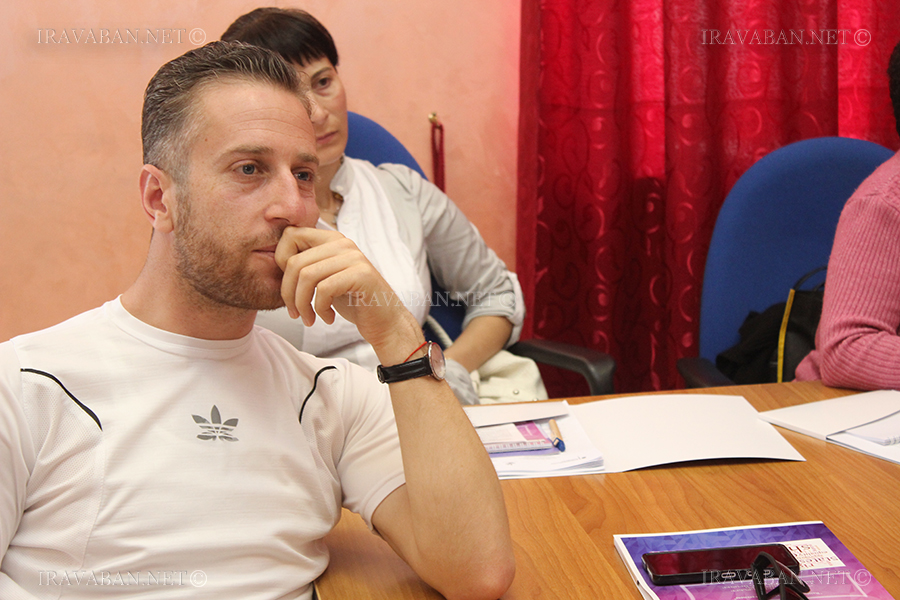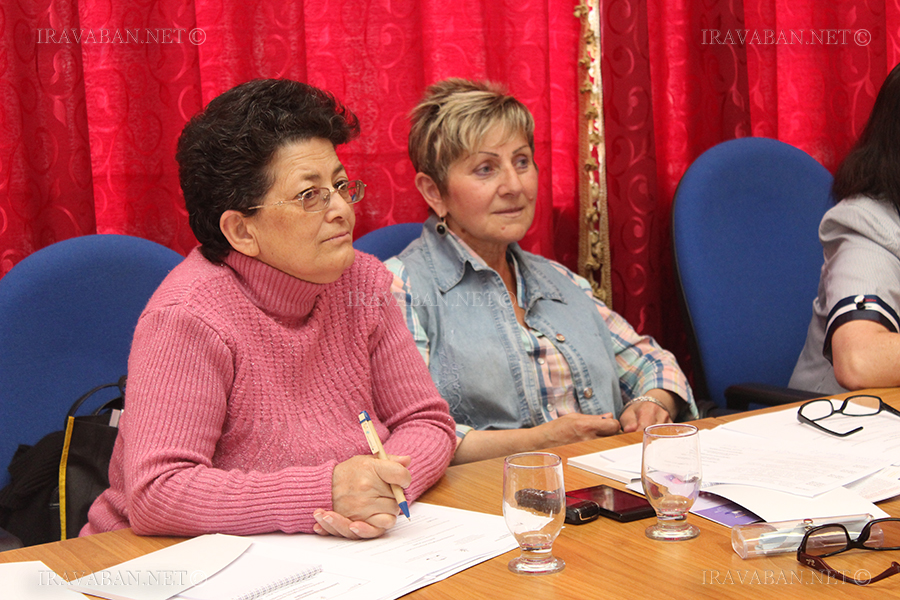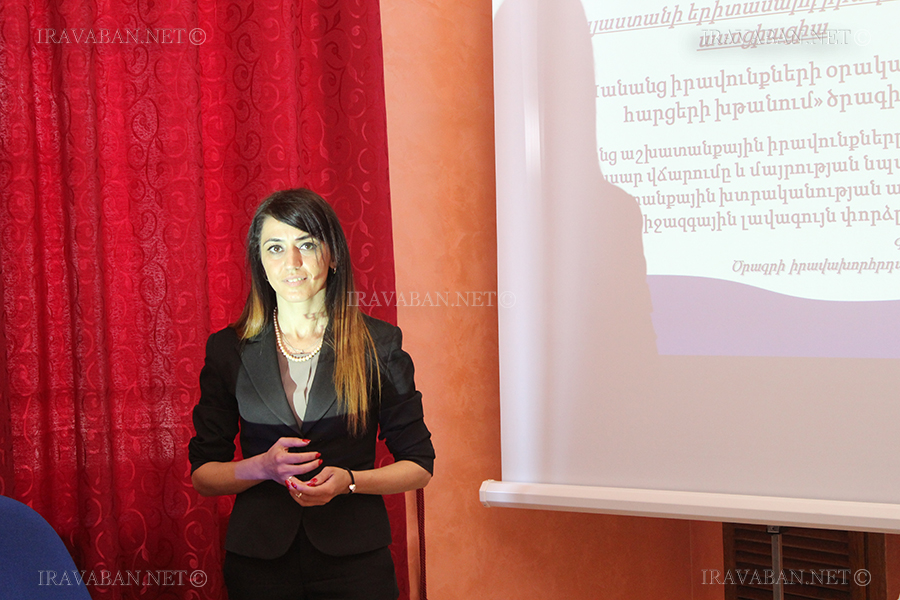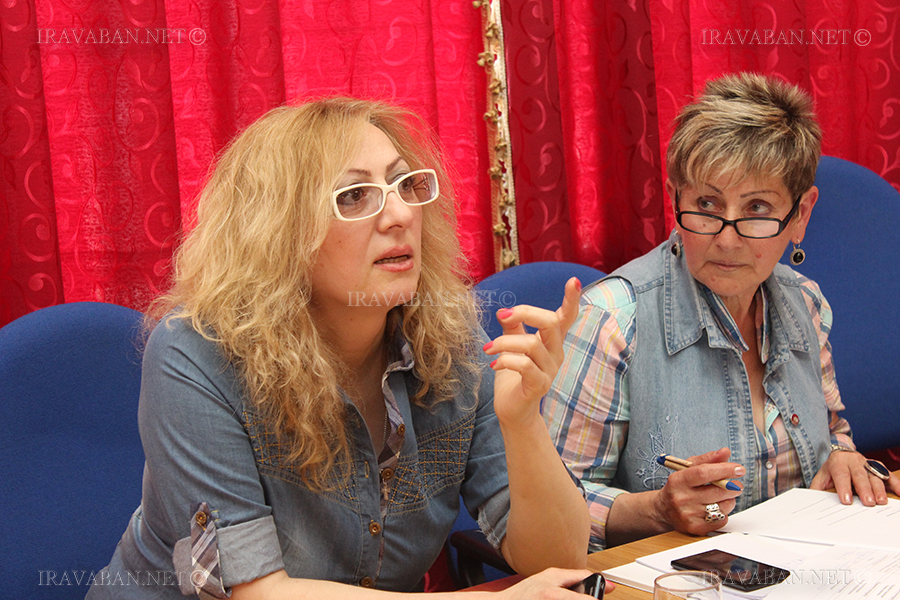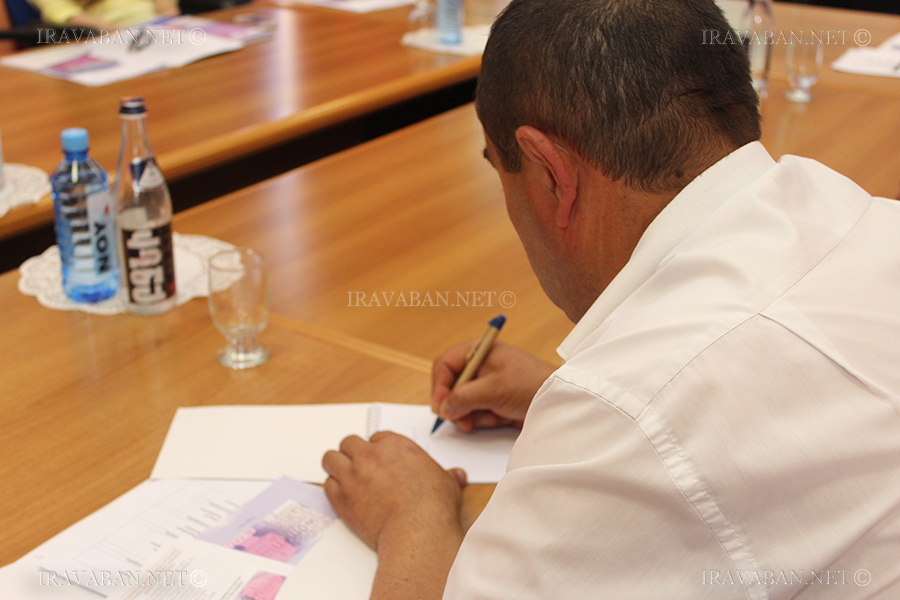Marriages are not registered, which brings to the property and social problems, connected with changes of some situations. This question is also topical in Shirak Marz: the representatives of the local self-government of Shirak Marz turned to this question which was organized during the training on “Women’s Rights” topic.
The training is held in the framework of “Influencing the Women’s Rights Agenda” Project, implemented by the Armenian Young Lawyers Association (AYLA) with financial assistance of Embassy of the Federal Republic of Germany.
AYLA Executive Director Artak Saribekyan in his greeting speech reported that in the framework of the project free legal advice is provided regarding to the women’s rights in Yerevan and in 4 Regions of the RA from 1 May, 2015.
AYLA Board Member, advocate Syuzanna Soghomonyan introduced property rights in the framework of the marriage, divorce and heritage.
Lusine Ginosyan, the Head of Family, Women, and Children Rights Protection Department at Shirak Marz Administration, noted that there are many cases that single mothers apply to them, with request to support gaining financial aid from children’s fathers to care their children’s daily needs. One of the attendants was a mother of five children. And because the marriage was not registered then factually the process of lodging a request of property and reaching a success became very difficult.
A question was announced during the discussion whether the registered marriage at Armenian Apostolic church can afford some rights. Syuzanna Soghomonyan said: “No, the marriage baptized by religious rite cannot evoke property rights. It is considered to be a factual marriage that is why property or other rights cannot emanate.
AYLA Legal Advisor, advocate Mariam Zadoyan introduced women’s participation issues in legislative, executive and judicial bodies. She says, that one of the current distressing problems is that there are no norms stated by the RA legislation, which will ensure women’s participation at LSG’s in communities (except for Council of the Elders of Yerevan). There are also no norms that will secure women’s participation at business organization councils.
One of the participants reported that the issues of women’s participation are artificial, and it is incomprehensible why quotas are given for securing participation. However, M. Zadoyan countered that if the issue was artificial then given quotas would remain vacant, however the facts evidence that all the places are being complemented.


